Recent Blog Posts
Do I Need a Lawyer for a Car Accident Claim? | IL Lawyer
 There are many ways you can benefit from hiring a lawyer after a car accident, especially if injuries, disputed fault, or insurance issues are involved. Early estimates released in 2025 found that 17,140 people lost their lives in motor vehicle crashes during the first half of the year. These accidents happen every day and make up the majority of personal injury claims.
There are many ways you can benefit from hiring a lawyer after a car accident, especially if injuries, disputed fault, or insurance issues are involved. Early estimates released in 2025 found that 17,140 people lost their lives in motor vehicle crashes during the first half of the year. These accidents happen every day and make up the majority of personal injury claims.
If you were hurt in a crash and are looking to recover compensation in 2026, a Rolling Meadows, IL car accident lawyer can help you understand your rights and pursue a fair settlement.
Your Guide to Medical Malpractice in Illinois
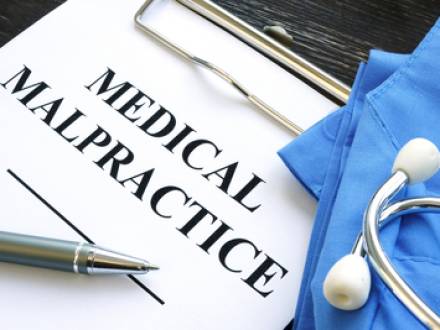 Medical malpractice happens when a doctor, nurse, or other healthcare provider makes a mistake that causes injury to a patient. This can involve doing something wrong or failing to do something that should have been done.
Medical malpractice happens when a doctor, nurse, or other healthcare provider makes a mistake that causes injury to a patient. This can involve doing something wrong or failing to do something that should have been done.
In 2025, the Illinois Department of Insurance reported that medical malpractice insurers in Illinois wrote more than $387 million in premiums. Clearly, these cases arise more often than you would think across the state.
As of 2026, Illinois courts continue to apply strict rules to medical malpractice claims, including firm filing deadlines and early expert review requirements. If you believe poor medical care caused you or a loved one harm, a Chicago, IL medical malpractice lawyer can help explain your rights and what steps to take next.
Top Causes of Truck Crashes and Why To Work With a Lawyer | IL
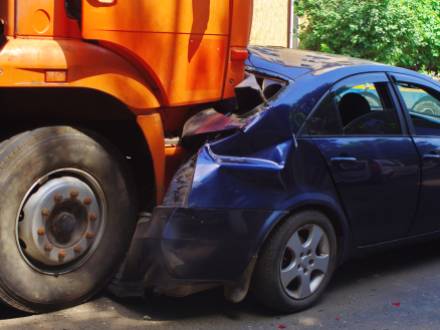 Truck crashes often cause serious injuries because commercial trucks are much larger and heavier than passenger vehicles. In a 2025 report from the National Highway Traffic Safety Administration, large trucks were involved in thousands of fatal crashes nationwide. Common factors included driver behavior, vehicle problems, and road conditions.
Truck crashes often cause serious injuries because commercial trucks are much larger and heavier than passenger vehicles. In a 2025 report from the National Highway Traffic Safety Administration, large trucks were involved in thousands of fatal crashes nationwide. Common factors included driver behavior, vehicle problems, and road conditions.
These cases are rarely simple. As of 2026, truck accident claims in Illinois still involve both state and federal safety rules. Finding out what caused the crash is often the key to knowing who may be legally responsible.
If you were hurt in a crash involving a semi-truck or other commercial vehicle, Adler Injury Law, Ltd. can help. Our Arlington Heights, IL truck accident lawyer will fight to protect your rights and help you build a strong claim for compensation.
When Is a Surgical Error Medical Malpractice in Illinois?
 Surgery is never risk-free. Even when a doctor follows proper steps, complications can still happen. When something goes wrong, you need to know whether the mistake counts as medical malpractice. Not every surgical problem qualifies as malpractice. Speak with our Cook County, IL medical malpractice lawyer to understand whether a surgeon crossed a legal line. We can help you build your malpractice claim and pursue compensation for your losses.
Surgery is never risk-free. Even when a doctor follows proper steps, complications can still happen. When something goes wrong, you need to know whether the mistake counts as medical malpractice. Not every surgical problem qualifies as malpractice. Speak with our Cook County, IL medical malpractice lawyer to understand whether a surgeon crossed a legal line. We can help you build your malpractice claim and pursue compensation for your losses.
What Is a Surgical Error in Illinois?
Surgical errors can happen before, during, or after surgery. Some mistakes are obvious right away. Others may not become clear until weeks or even months later.
Common examples of surgical errors include:
-
Operating on the wrong body part or patient, which is usually preventable
Could I Be at Fault if Another Car Rear-Ends Me?
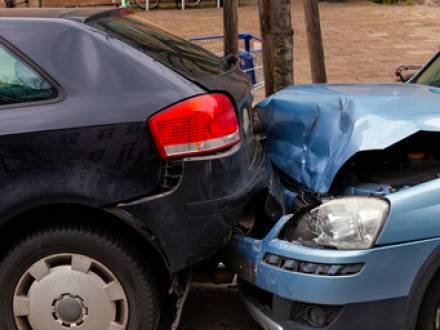 Rear-end accidents are common in Illinois. Many people assume that the person who hits another vehicle from behind is always to blame. They often are. However, reality is not always that simple. Fault depends on the facts of the crash, the actions of both drivers, and how state negligence laws apply. If you have questions about who may be responsible for a rear-end collision you were involved in, our experienced Mount Prospect, IL car accident lawyer can give you answers and legal guidance.
Rear-end accidents are common in Illinois. Many people assume that the person who hits another vehicle from behind is always to blame. They often are. However, reality is not always that simple. Fault depends on the facts of the crash, the actions of both drivers, and how state negligence laws apply. If you have questions about who may be responsible for a rear-end collision you were involved in, our experienced Mount Prospect, IL car accident lawyer can give you answers and legal guidance.
Is the Rear Driver Always at Fault for a Rear-End Crash in Illinois?
In most situations, the driver who hits another car from behind is considered at fault. Under 625 ILCS 5/11-710, motorists must not follow another vehicle closer than is reasonable and prudent for the speed and traffic conditions. Violating this law can cause a collision. These types of crashes typically happen when the driver in the back was driving too fast, was distracted, or was following too closely.
Black Friday Store Negligence and Illinois Premises Liability Claims
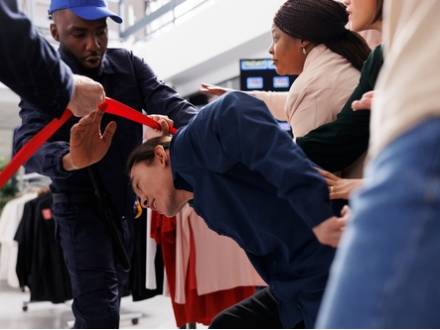 Although Black Friday is meant to be about good deals rather than danger, every year, Illinois shoppers are injured due to overcrowded aisles, chaotic entrances, slippery floors, falling merchandise, and poorly controlled crowds. Since retailers are well aware that Black Friday brings larger-than-normal crowds and higher risks, they are required to keep their stores reasonably safe.
Although Black Friday is meant to be about good deals rather than danger, every year, Illinois shoppers are injured due to overcrowded aisles, chaotic entrances, slippery floors, falling merchandise, and poorly controlled crowds. Since retailers are well aware that Black Friday brings larger-than-normal crowds and higher risks, they are required to keep their stores reasonably safe.
When stores cut corners on staffing, safety protocols, or crowd management, injured customers may have a valid premises liability claim under Illinois law. An experienced Chicago, IL premises liability attorney will examine the evidence related to your injuries, then build the strongest case possible on your behalf.
Why Black Friday Creates High-Risk Conditions
While most shoppers enjoy their Black Friday excursions, the following high-risk conditions are likely to be present:
Am I Hurt Badly Enough to Sue?
 After an accident, many people wonder whether their injuries are "serious enough" to take legal action. You might feel unsure about whether to call a personal injury lawyer or just let insurance handle it. This is an important question, and you do not have to answer it alone. An experienced Mount Prospect personal injury lawyer can review your case for free and help you understand your options.
After an accident, many people wonder whether their injuries are "serious enough" to take legal action. You might feel unsure about whether to call a personal injury lawyer or just let insurance handle it. This is an important question, and you do not have to answer it alone. An experienced Mount Prospect personal injury lawyer can review your case for free and help you understand your options.
If someone else’s carelessness caused your injury, whether in a car crash, at a business, or in a hospital, you may have the right to seek compensation. Call 312-236-2700 to find out.
How Serious Do Injuries Need to Be to File a Lawsuit?
You do not need to be permanently disabled or in excruciating pain to have a valid personal injury case. The key question is whether your injury caused real harm that affected your life. That can mean physical pain, lost income, medical bills, or emotional stress. For example:
What Is a Nursing Home Wrongful Death Claim?
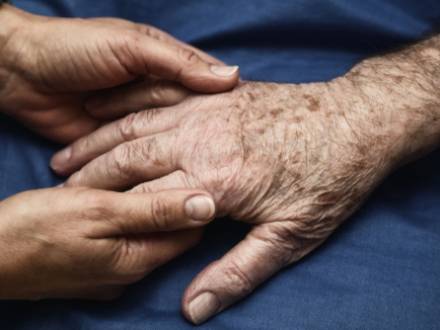 A wrongful death claim is a civil lawsuit you can file when negligence causes a nursing home resident’s death. In nursing homes, this often involves medical errors, poor supervision, and other violations of the Illinois Nursing Home Care Act.
A wrongful death claim is a civil lawsuit you can file when negligence causes a nursing home resident’s death. In nursing homes, this often involves medical errors, poor supervision, and other violations of the Illinois Nursing Home Care Act.
Wrongful death cases are not about placing a dollar value on the life of someone you love. They are about accountability. Families can recover damages for funeral costs, medical expenses, loss of companionship, and emotional distress. Just as importantly, these claims can expose dangerous practices and pressure nursing homes to improve their care. Our Cook County nursing home death attorney can help you move forward.
What Are the Most Common Causes of Wrongful Death in Nursing Homes?
Nursing home deaths can result from many different types of neglect or misconduct, but some causes appear more frequently in legal claims and state investigations:
How Do Statutes of Limitations Work in Illinois?
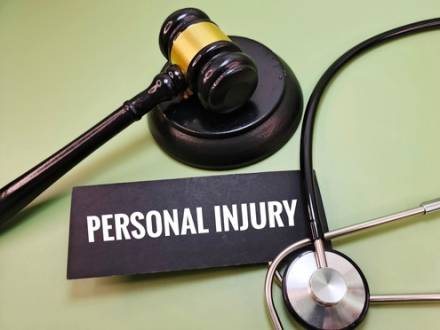 If you have been injured in an accident, time is not on your side. In Illinois, personal injury claims are subject to statutes of limitations. These are strict legal deadlines that determine how much time you have to file a lawsuit. Missing that deadline could mean losing your right to recover compensation forever, even if your case is very strong.
If you have been injured in an accident, time is not on your side. In Illinois, personal injury claims are subject to statutes of limitations. These are strict legal deadlines that determine how much time you have to file a lawsuit. Missing that deadline could mean losing your right to recover compensation forever, even if your case is very strong.
Understanding how these deadlines work is essential for anyone pursuing a claim. At Adler Injury Law, Ltd., our Rolling Meadows personal injury attorney helps injury victims fight back against large insurance companies. We offer free consultations and are committed to protecting your rights from day one.
What Is a Statute of Limitations?
A statute of limitations is a law that sets the maximum amount of time you have to file a legal claim after an injury or wrongful act occurs. The purpose of these deadlines is to ensure that lawsuits are filed while evidence is still fresh and witnesses’ memories are reliable.
Can I Sue for a Delayed Diagnosis in Illinois?
 When you go to the doctor, you need to trust that any medical issue will be found and treated in time. But when a doctor does not recognize the signs of a serious illness, the delay can cause your health to get much worse. A condition that could have been managed early may become life-threatening, and the treatments can be more painful, costly, or less effective if you begin them later.
When you go to the doctor, you need to trust that any medical issue will be found and treated in time. But when a doctor does not recognize the signs of a serious illness, the delay can cause your health to get much worse. A condition that could have been managed early may become life-threatening, and the treatments can be more painful, costly, or less effective if you begin them later.
In Illinois, patients may be able to file a medical malpractice claim if a delayed diagnosis leads to harm. These cases are not simple, but patients have the right to hold negligent healthcare providers accountable. If this happened to you or a loved one, a Mount Prospect, IL medical malpractice lawyer can explain your legal options.
What Is a Delayed Diagnosis in Medical Malpractice Cases?
A delayed diagnosis means a doctor failed to detect a condition when another reasonably careful doctor would have. This can happen when early warning signs of cancer are overlooked, a heart condition is not tested for in time, or an infection is not treated until it becomes severe.
No Fee Unless We Win







 312-236-2700
312-236-2700






